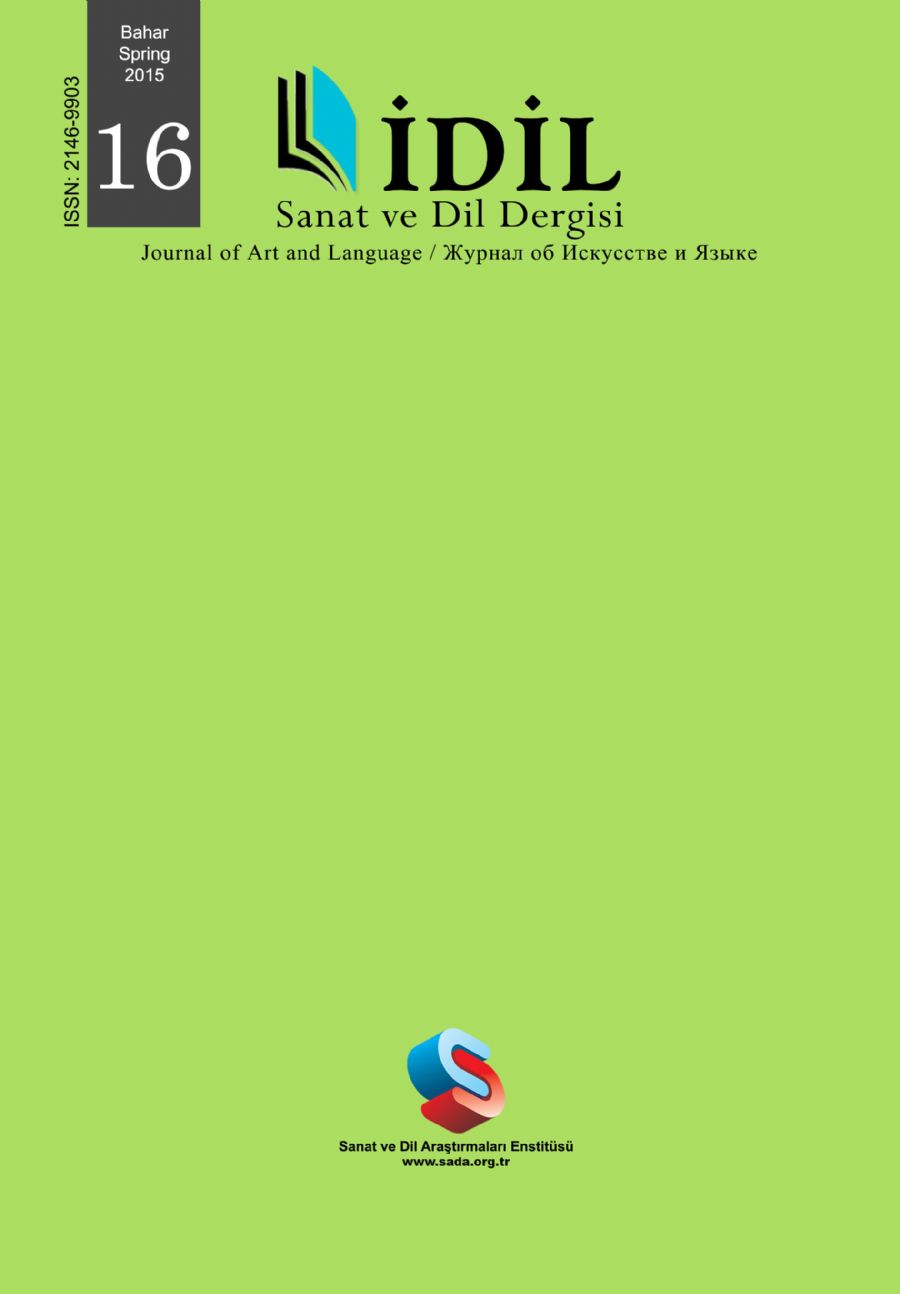RUS TİYATROSUNUN HALK KÜLTÜRÜNDEKİ KAYNAKLARI
THE SOURCE OF RUSSIAN THEATER IN FOLK CULTURE
Author(s): Seyhan UçarSubject(s): Theatre, Dance, Performing Arts, Customs / Folklore, Cultural Anthropology / Ethnology
Published by: Sanat ve Dil Araştırmaları Enstitüsü
Keywords: Theater; tradition; skomorokhi (wandering minstrel-clowns); ceremony; wedding; feast days; puppet theater;
Summary/Abstract: The folk culture, which is the foundation of contemporary values, provides to societies distinctive creativity duration by effecting artistic expression forms. On the other hand, the theater, as both a visual and literary genre, has become a cultural system by presenting ways for understanding and transmission of the events in versatile ways. Within this context, it can be said that the folk culture has had an encouraging effect on the turning theatrical art into a generic form and on the movement of the theater art with different adaptations. In Russia, primitive theatrical signs with regards to folk culture are seen in the period before the organisation of the first governmental theater. In that period especially the feast days, plays, skomorokhi (wandering minstrel-clowns) and puppet theater made a significant contribution to the theater art and moved it to the professional stage. In this article, it is aimed to discuss the theatrical importance of the factors belonging to the folk culture and the developments, composing the basics of the Russian theater, through the ceremonies, folk dances, weddings, feast days, pagan rituals and the travel notes.
Journal: İdil Sanat ve Dil Dergisi
- Issue Year: 4/2015
- Issue No: 16
- Page Range: 147-160
- Page Count: 14
- Language: Turkish

